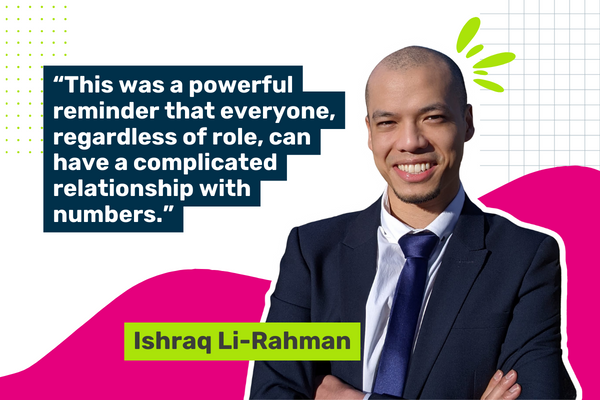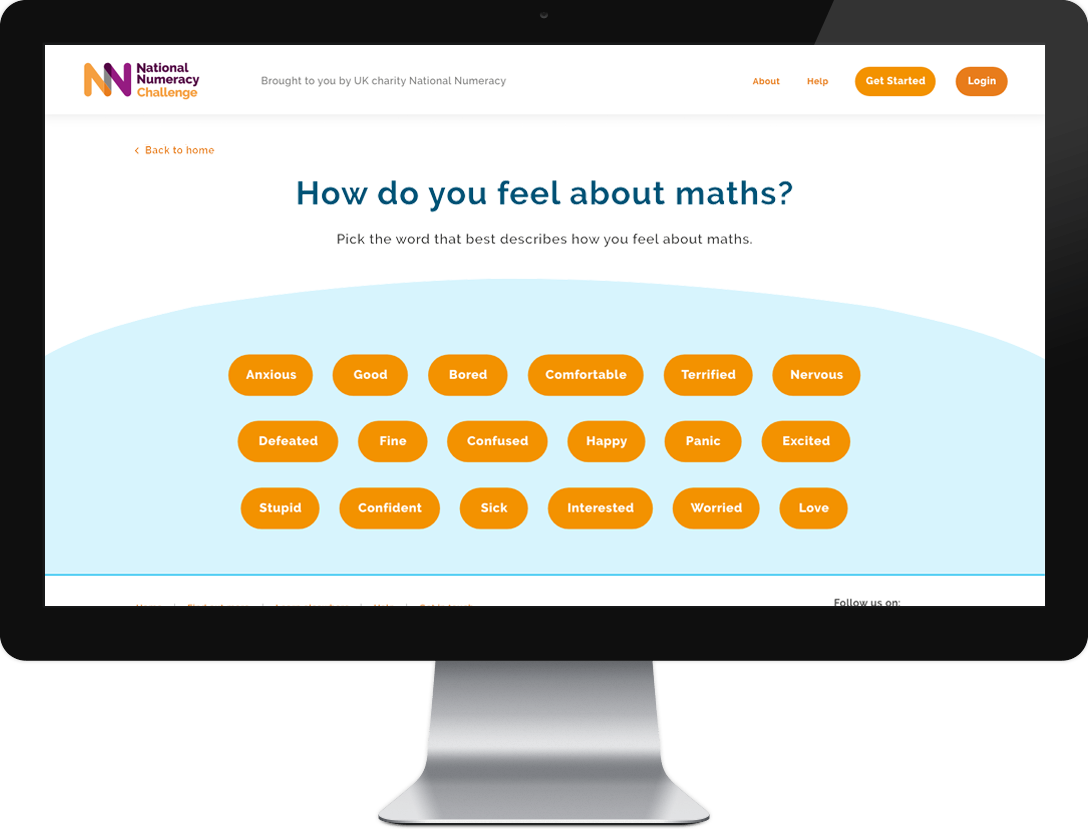When we first introduced the Big Number Natter it was the first ever nationwide conversation about numbers. It’s a great opportunity to have a chat about numbers and change lives for the better.
At our natter we had people representing many of the different teams and job roles here at National Numeracy. We had officers, managers, and directors, and even our CEO Sam Sims joined in! It was an insightful discussion and not everything was what you might expect from a charity called National Numeracy!
Here are some of my key takeaways from the conversation:
- It’s easy for us to pass on negative mindsets to children, so we have to be very aware of what example we’re setting.
- Even when you like maths, it can make you feel stupid and anxious.
- It’s okay to make mistakes.
Passing on maths anxieties to children
Children are like sponges; if you have young children in your family, it can be easy to pass on attitudes and anxieties. Our Communications Manager, Cass, spoke about what she experienced in her childhood. It was very much a case of her mum saying she wasn’t a maths person, and for anything involving numbers she was sent to her dad. I’m sure many of us have had similar experiences growing up. What worries Cass is how she feels she’s now mirroring what she’d experienced, passing down these behaviours and attitudes to her children.
Tori, a Partnerships Manager, was also anxious before joining National Numeracy. However, like Cass, she is making a real effort to choose her words wisely around her nieces and nephews to not pass on those feelings – even her mum is doing the same thing!
Abby, an Operations and HR Officer, also shared her determination to set a good example and improve her maths skills, motivated by a desire to challenge the stereotype that girls aren't good at maths. She wants to ensure her sons grow up without this biased mindset.
Challenging mindsets
Challenging mindsets is also important when it comes to assumptions about skills and confidence with numbers. Two of our natterers have degrees in maths, so you’d expect that they always find maths easy, right? WRONG!
Ellie, our Partnerships Officer who loves maths and holds a degree in the subject, confessed to feeling immense pressure to always get the right answer. She struggles with the internal monologue that doing calculations in your head is best. However, Ellie is learning to embrace tools like calculators and Excel, understanding that using these resources is simply making use of the tools available, and there is no shame in that.
And Paul, our Head of Impact and Evaluation and go-to for data, is a former maths teacher and maths degree holder. He likes maths and uses it every day at work. He’s also an avid runner, but when he tried to work out his running schedule, thinking about how long it would take him to run to a point and back, he couldn’t do it. He went so far as to say that in that instance, numbers made him feel stupid!
Embracing mistakes
Despite Paul’s expertise, he acknowledged still making mistakes, and emphasised the importance of being okay with that. This vulnerability was echoed by many, highlighting a key point: it's okay to get it wrong! Tori’s word to describe her feelings toward numbers used to be “anxious”, but she now proudly states it is “learning”. She is much more comfortable thinking about improving her numeracy and learning the maths she doesn’t know already.
Sam Sims, our CEO, shared that he finds numbers "helpful." He's always been interested in basic maths and how it can aid in making arguments or decisions. He related it to landscaping and a sense of achievement and, like Paul and Tori, is a big promoter of the idea that making mistakes and having another go is perfectly acceptable.
This Big Number Natter was a powerful reminder that everyone, regardless of their role or expertise, can have a complicated relationship with numbers. It’s a journey of learning, making mistakes, and growing more comfortable with numeracy.






